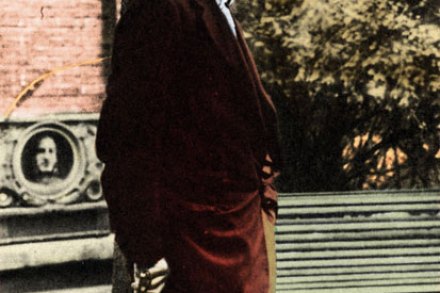While Holmes is away
Careful Sherlockians, on returning in adulthood to the four novels and 56 short stories that they devoured uncritically in their teens, tend to notice an endearing vagueness on the part of Sir Arthur Conan Doyle when it comes to details. There is Watson’s old war wound, for instance, which journeys absent mindedly between shoulder and leg. And there is Doyle’s inability to remember dates or even his own characters’ names. In ‘The Creeping Man’ the client, Trevor Bennett, is met by his fiancée with a gushing, ‘Oh, Jack, I have been so dreadfully frightened.’(Watson himself has form here. In ‘The Man With the Twisted Lip’ his wife calls him James




















